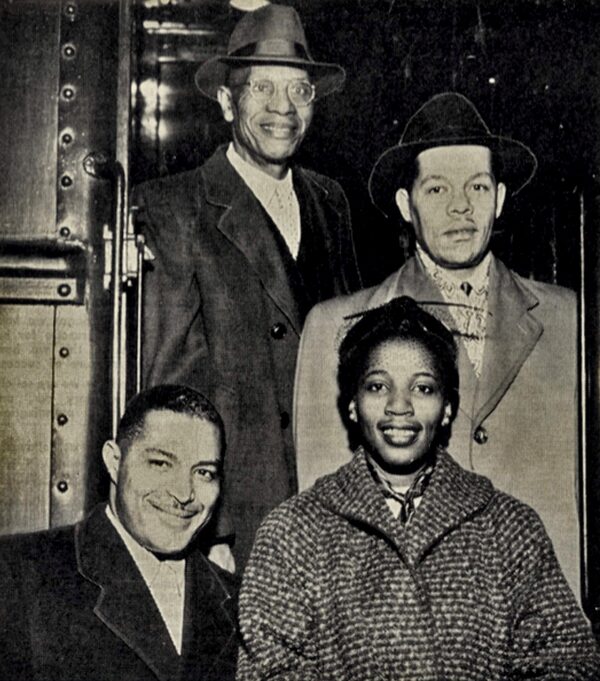Good morning,
The Canadian Forces and Red Cross will be sent to Ontario to help hospitals inundated with COVID-19 patients as the province reconsiders its vaccine strategy in light of scientific advice that it could flatten the third wave faster by further targeting hotspots.
The record-setting rise in COVID-19-driven hospitalizations and ICU admissions in Ontario is forcing one of Canada’s richest provinces to rely on the federal government and smaller provinces for help. The small team from the Canadian Forces was announced on the same day the first patient was admitted to a “last resort” field hospital at Toronto’s Sunnybrook hospital, which admits patients when there are no more beds left within the building.
Ontario asks Ottawa to administer sick leave benefit for workers amid third wave of COVID-19
Toronto, Peel target businesses with COVID-19 outbreaks
Hope wanes that Ontario students will return to in-class learning before the end of the school year
Fort McMurray declares state of emergency amid COVID-19 surge
The region that encompasses Fort McMurray has declared a state of local emergency as the coronavirus spreads out of control in northern Alberta, prompting local leaders to ask their federal and provincial counterparts to ship extra doses of vaccine to the region.
Alberta has the highest rate of active cases of COVID-19 in the country, and the Regional Municipality of Wood Buffalo has the highest rate of active infections in the province. The hospital in Fort McMurray has added two beds to its seven-bed intensive care unit and postponed non-urgent procedures in an effort to cope with the wave of infections. In Fort McMurray, schools are closed for in-person instruction. Work camps in the oil sands, which house thousands of labourers, have hundreds of active COVID-19 cases among them.
Nova Scotia tightens restrictions to stamp out surge in COVID-19 cases
Long lines are forming at COVID-19 test sites around Nova Scotia as the province, one of Canada’s success stories in the fight against the coronavirus, tries to stamp out a sudden surge in cases and keep the pandemic’s third wave at bay.
Nova Scotia, with 181 new cases in the past three days, is shutting down schools and social gatherings in response to spiking COVID-19 numbers that are outstripping the previous peak a year ago, when the virus was first detected in the province.
Read more:
Experts explain trends they’re seeing among infected children during this third wave of the pandemic
André Picard: The death of a child speaks volumes about Canada’s tepid COVID-19 response
Editorial: We’re getting COVID-19 shots. Now, find the willing arms

Wanita Tennant (centre) arrives at the closed COVID-19 vaccine clinic on the campus of Centennial College on Progress Ave. in Scarborough on Wednesday morning.Melissa Tait/The Globe and Mail
This is the daily Morning Update newsletter. If you’re reading this on the web, or it was forwarded to you from someone else, you can sign up for Morning Update and more than 20 more Globe newsletters on our newsletter signup page.
Israel’s treatment of Palestinians amounts to ‘apartheid,’ Human Rights Watch report says
Israel’s treatment of the Palestinians amounts to “apartheid,” a leading international human-rights group has concluded in a new report, which also calls on foreign governments to impose sanctions and reconsider trade deals with the Jewish state.
In addition to alleging apartheid (which is considered a crime against humanity under international law), Human Rights Watch accuses Israel of the separate crime of persecution in the 233-page report – an advance copy of which was provided to The Globe and Mail.
The Israeli government dismissed the report as a “propaganda pamphlet” and said Human Rights Watch, a widely respected non-governmental organization headquartered in New York, had an “anti-Israel agenda.”
Got a news tip that you’d like us to look into? E-mail us at tips@globeandmail.com Need to share documents securely? Reach out via SecureDrop
ALSO ON OUR RADAR
Family of Inuk man killed by RCMP wants more answers: The RCMP says it cannot release more than a basic description of the police shooting death of Abraham Natanine in Nunavut because the details could create bias in a coroner’s inquest expected to be three to four years away.
Tensions simmer as dock workers stage strike at Port of Montreal: Canada’s biggest eastern port has ground to a near-halt for the second time in less than a year after dock workers walked off the job yesterday, further raising tensions ahead of possible intervention by the federal government in the days to come.
Mongrel Media launches Canadian streaming service: Mongrel Media, Canada’s preeminent distributor of art-house film, is hoping to lure in home audiences tired of Netflix by launching a digital streaming service on April 30 that will consist of 150 titles.
MORNING MARKETS
World stocks dip: Shares dipped from record highs on Tuesday as optimism about the economic recovery was dented by caution ahead of the Federal Reserve’s policy decision and a raft of earning updates. Just before 6 a.m. ET, Britain’s FTSE 100 slid 0.13 per cent. Germany’s DAX and France’s CAC 40 were down 0.36 per cent and 0.14 per cent, respectively. In Asia, Japan’s Nikkei fell 0.46 per cent. Hong Kong’s Hang Seng lost 0.04 per cent. New York futures were little changed. The Canadian dollar was trading at 80.54 US cents.
WHAT EVERYONE’S TALKING ABOUT
John Ibbitson: “If you’re a provincial premier, you should be wary of Finance Minister Chrystia Freeland’s proposal for a shared-cost child care program. Because if past is precedent, your successors will end up footing the bill.”
Allan O’Dette: “These physicians deserve our admiration, not our derision. They have made enormous personal sacrifices, taken risks and worked around the clock to steer us through the worst public-health crisis of our generation.”
TODAY’S EDITORIAL CARTOON

By Brian GableBrian Gable/The Globe and Mail
LIVING BETTER
Globe Craft Club: Get your paints and brushes ready to learn watercolour
If you’ve ever wanted to learn how to paint with watercolours, join Globe Craft Club host Jana G. Pruden on Tuesday night at 7 p.m. ET for a livestream lesson. Ashley Gayle, an artist, art teacher and co-creator of artistsonline.ca, will offer beginner tips for painting a flower arrangement design. Watch the event free on our website at tgam.ca/craftclub, where you’ll also find a list of supplies needed, a template and links to all our previous classes. If you try any of our Craft Club projects, show us on social media with #GlobeCraftClub.
YOUR DAILY HOROSCOPE
IF TODAY IS YOUR BIRTHDAY: Not only is there a full moon on your birthday but Pluto begins one of its retrograde phases. What does that mean? It means you must tread carefully when dealing with powerful people. You need to work with them, not turn them against you.
Read today's horoscopes. Enjoy today's puzzles.
MOMENT IN TIME: APRIL 27, 1954

Part of the delegation of the Negro Citizenship Association is shown here boarding the train at the Union Station in Toronto, for Ottawa, where they presented a brief to Walter E. Harris, Minister of Immigration on April 27, 1954.The Canadian Negro
Protesting Ottawa’s immigration laws
More than 60 years ago, a group of determined Black activists boarded a train in Toronto to head to Ottawa to protest against discriminatory immigration laws. This marked the first time in Canada that a Black-led delegation brought activism directly to the doorstep of the federal government. The delegation, comprised of civil-rights activists, including Bromley Armstrong and brothers Stanley and Norman Grizzle, was led by Barbadian Canadian Donald Moore. The group met with then-minister of immigration Walter Harris and presented him with a brief outlining the ways that Canada’s laws made it unjustly difficult for non-white immigrants to enter the country. Black British subjects seeking entry were routinely discriminated against on the grounds they would not be able to adapt to the cold climate and would become a “burden to society.” The group’s efforts led to the implementation of the West Indian Domestic Scheme in 1955, an arrangement that allowed young women from the Caribbean to apply for citizenship after working in Canada for at least one year. Eventually, the government further relaxed its immigration laws in 1962, owing in large part to the attention this delegation brought to the systemic racism faced by Black and non-white immigrants. Madalyn Howitt
If you’d like to receive this newsletter by e-mail every weekday morning, go here to sign up. If you have any feedback, send us a note.